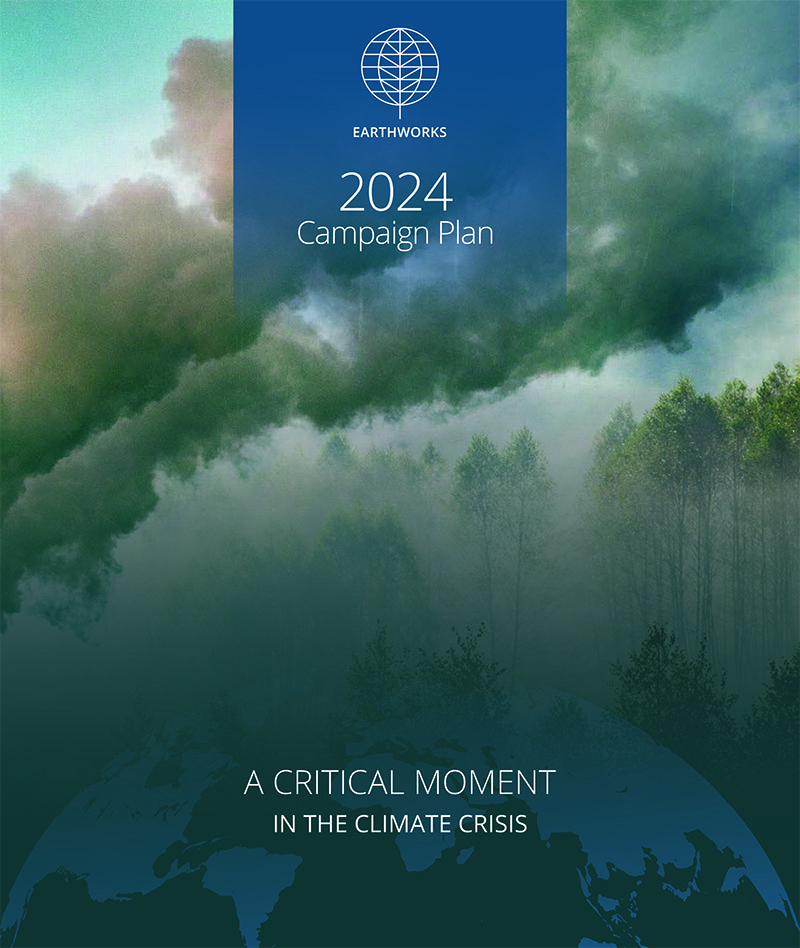A Critical Moment in the Climate Crisis
Late-breaking news of 2023 means big change in 2024. In December, the EPA announced finalized updates to federal methane regulations, which will reduce methane by 58 million tons between 2024 and 2038 if properly implemented and enforced. We spoke with Earthworks Policy Director Lauren Pagel about the long road to regulations and how we will keep momentum up in 2024.

What role did Earthworks play in the development of these new standards?
Lauren: We’ve been working toward this for over a decade now. The EPA has directly cited Earthworks as a source of strengthened regulations due to our work with Optical Gas Imaging (OGI) cameras. OGI cameras are an amazing tool because they capture oil and gas leaks that are not visible to the naked eye. Quite literally, they help make invisible harm visible.
New methane standards have been finalized. What’s next? What does enforcement look like?
Lauren: From here, the work shifts to states. Each oil and gas-producing state will prepare state-specific, unique implementation plans over the next two years. Earthworks’ field staff are doing amazing work, as you can read on the next page, to make sure those plans are as rigorous as they need to be. We are also counting on the EPA to quickly draft a federal plan for implementation — to be used by states and tribes who are unwilling or unable to put their own plans in place.
What’s at risk? What are the consequences of weak enforcement?
Lauren: Frontline communities are most at-risk if these regulations are poorly enforced. That means exposing people to even more toxic emissions that cause health problems ranging from asthma and nosebleeds to increased risk of cancer. The other big piece, of course, is that we need a rapid reduction in methane production to avert climate catastrophe, so this impacts us all in the long run.
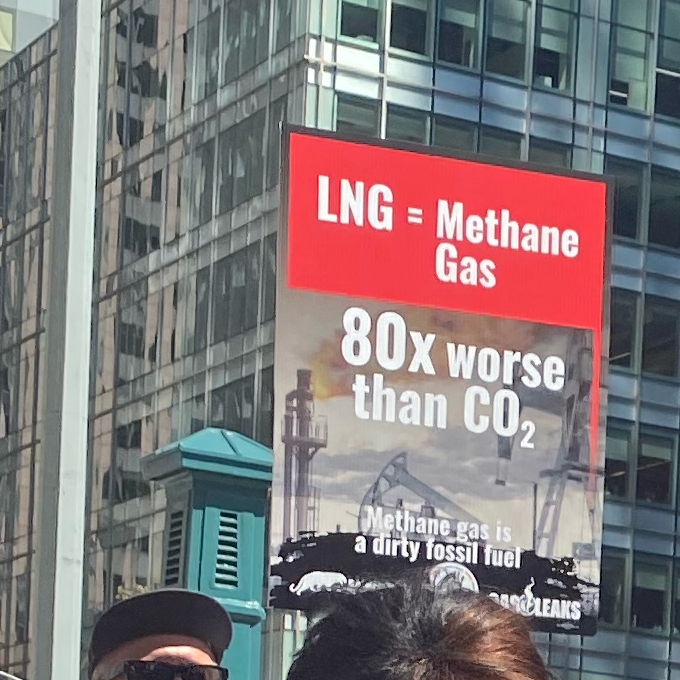
Speaking of climate catastrophe, methane reduction is just one piece of the equation. What else is needed to lower global temperatures?
Lauren: We need a global commitment to stop new oil and gas extraction and infrastructure and begin to phase out fossil fuels as we transition toward a sustainable, renewable energy future.
President Biden recently put a temporary pause on new liquefied “natural” gas (LNG) export facilities. While that is an important first step, it’s time to use the power of the White House to declare a climate emergency, and permanently stop the buildout of LNG, oil and petrochemical facilities across the country to speed the transition to a clean, just energy future.
Your support will help communities meet this critical moment in the climate crisis.
Views from the Field
What happens on the national stage has state and local implications, especially where new EPA regulations are concerned. Here’s how our field team is tackling unique challenges to implementation in the states they work.
“Colorado rules were used as a model for EPA methane regulations and yet Coloradans from Denver to Fort Collins continue to suffer from poor air quality due to oil and gas pollution and expansion. If regulators in Colorado want to truly demonstrate leadership on methane, they will take this opportunity to show how rules must be backed up by strong oversight and enforcement. Communities forced to live alongside fracking are losing patience with superficial regulations.”
– Andrew Klooster, Colorado Field Advocate
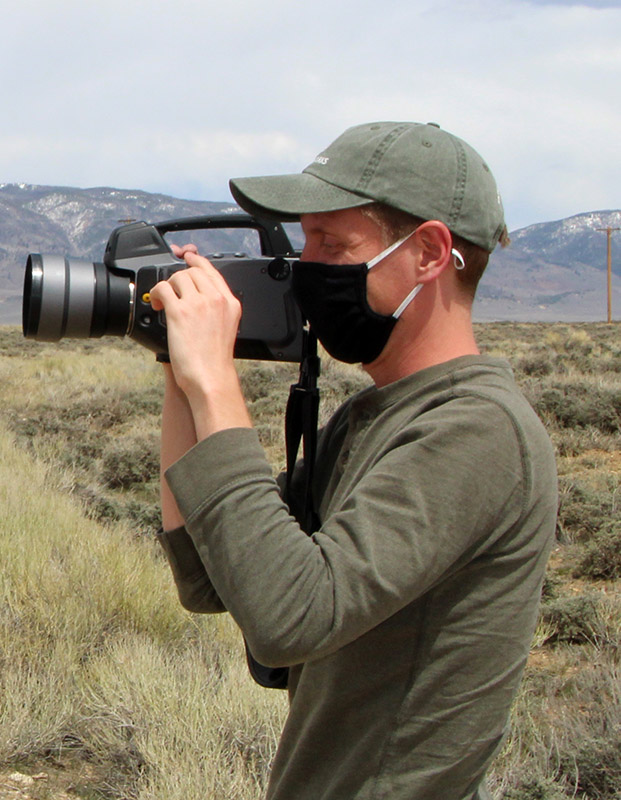
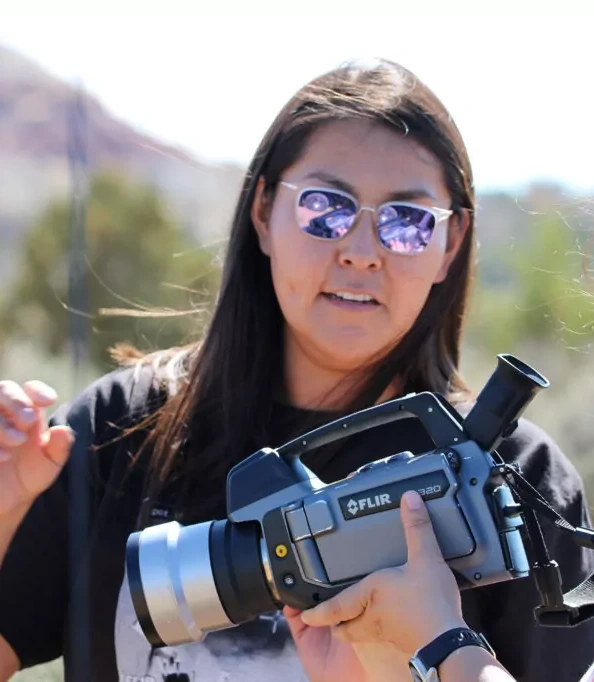
“We hope the new state methane rules in New Mexico hold operators accountable for abandoned wells. New Mexico is unique because one third of the state’s revenue is from taxes on oil and gas extraction. We are working closely with Indigenous communities and other New Mexicans who are being harmed by oil and gas wells. Pollution is only possible because their voices are intentionally ignored.”
– Kendra Pinto, New Mexico Field Advocate
“We are going to hold Pennsylvania accountable to EPA’s new methane rules so that all oil and gas wells get inspected — including tens of thousands of smaller ones across the state. We will also press for regulations to prevent more abandoned wells that leak methane and other toxics in backyards and parks in Pennsylvania. Our governor is sympathetic to the argument that the industry produces necessary jobs, but the momentum to stop climate catastrophe and protect public health is growing.”
– Melissa Ostroff, Pennsylvania Field Advocate
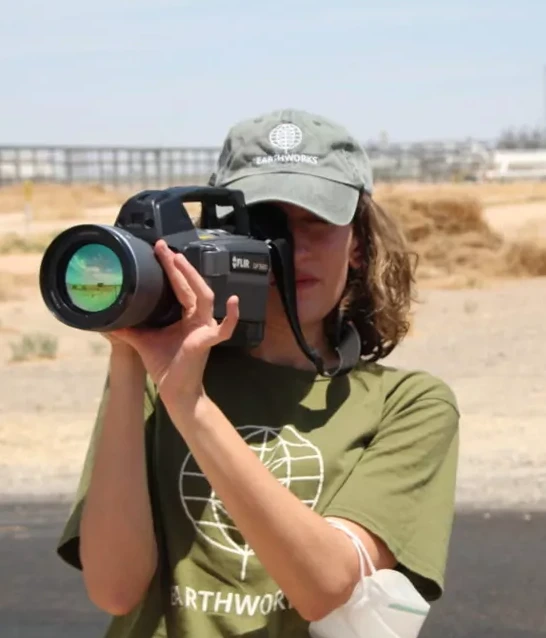
Moving Forward on All Fronts
A Critical Moment for Oil and Gas
The U.S. fossil fuel industry exports liquefied “natural” gas (LNG) internationally, creating huge health and environmental costs for local communities. We’re celebrating a win as the Biden administration just announced that it won’t approve any new LNG export terminals until they determine whether they are in the public’s best interest.
This is a sign that communities finally have the Biden administration’s ear. In 2024 Earthworks will continue to support grassroots organizations like RISE St. James and The Vessel Project as they capitalize on this pivotal moment demonstrating that oil, gas, and petrochemical companies are not safe neighbors.
“Halting permits for these industries…is a powerful statement that we can no longer allow these industries to continue operating without considering the health and safety of the people living in these areas. While this decision is a significant victory, we must not become complacent.” – Roishetta Ozane, Director of the Vessel Project of Louisiana
Stop Destructive Mining Practices
Reform the 1872 Mining Law
For over 30 years Earthworks has been fighting to reform the 1872 Mining Law that enables the U.S. government to give away public land freely to mining companies. We’ve begun to see pathways to reform under the Biden administration, which is why this election year is so critical to pushing for greater and more rapid change.
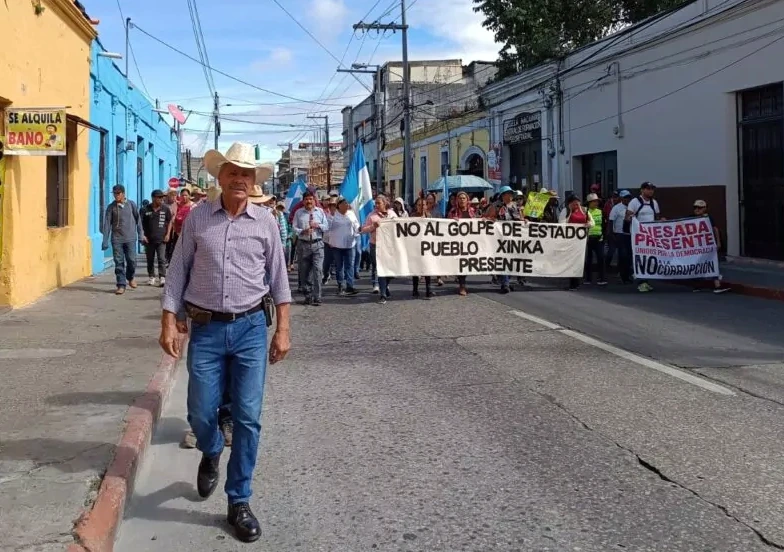
Support Impacted Communities
Mining should move forward only with informed consent from mining communities, especially Indigenous Peoples, who are already dealing with centuries of exploitation. In alignment with this principle, we’re supporting key communities fighting invasive mines in places like Nevada, Montana, California, Alaska, Brazil, Guatemala, and Indonesia.
“I’m hopeful that this year will bring more unity and solidarity for social and environmental justice in the face of mining. To get to work with people on human rights and environmental justice who care so deeply about stewarding the landscapes they call home and all living beings that reside there, has been such an honor.” – Jared Naimark, California Mining Organizer
Make Clean Energy Clean
Electric vehicle companies are invested in their environmental and clean public image and are showing receptivity to our efforts to make mineral supply chains more responsible. This year, Earthworks will continue to lean into coalition building to hold automakers and mining companies accountable for dangerous mining practices.
“As more momentum builds around taking climate action at a global, societal and individual level, I’m hopeful that we’ll be able to use this as an opportunity to campaign for a just transition that is equitable, and to highlight how the most marginalized communities and regions should not be adversely affected by this transition.” – Vuyisile Ncube, Making Clean Energy Clean, Just, and Equitable Advocate
Earthworks Global
In so many ways, the international communities we support (from Norway to Guatemala and beyond) are modeling how to organize against predatory oil and gas and mining companies for the sake of protecting communities.
“I am motivated by the strength and success of our partners to stand up to irresponsible mining companies. From Brazil to the Dominican Republic to South Africa, we are working with incredible frontline community members and local organizations who are demanding a clean, healthy environment, respect for their human rights and the opportunity to make decisions about the projects that affect their lives.” – Jan Morrill, Tailings Campaign Manager
International Optical Gas Imaging
We’re conducting OGI investigations internationally, with recent pilot projects in Mexico, Argentina, Colombia, and Brazil producing significant media coverage and supporting grassroots efforts to drive corrective action.
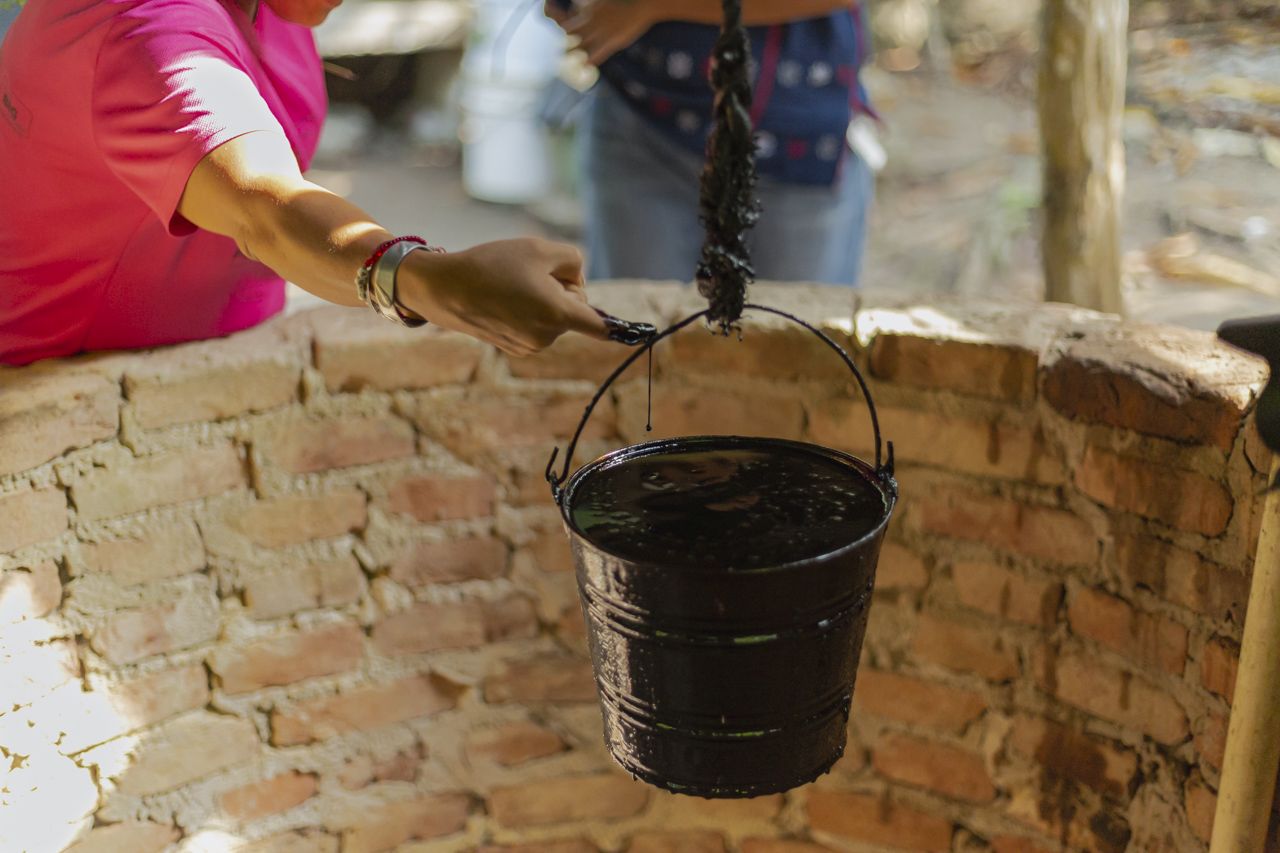
“The conditions I’ve seen on field visits are extreme. One family I met in Mexico had a water well on their property that had been filled with oil for years, and that’s just one example…but organizers and communities in Latin America are leading the way in coalition-building!” – Patricia Rodriguez, International OGI Analyst and Advocate
You are the Key to Progress
Thank you for being a part of this movement. Our work relies on people like you who are invested in and care about the future. Public attention is a powerful tool and we will continue to rely on your support to apply pressure on governments and corporations concealing environmental damage and working against the best interests of communities.
Your support is essential to keeping a strong Earthworks team in place. In all areas mentioned in this year’s campaign plan there is room for you to make a significant difference; please consider making a generous one-time or a monthly donation to help us reach these goals.

